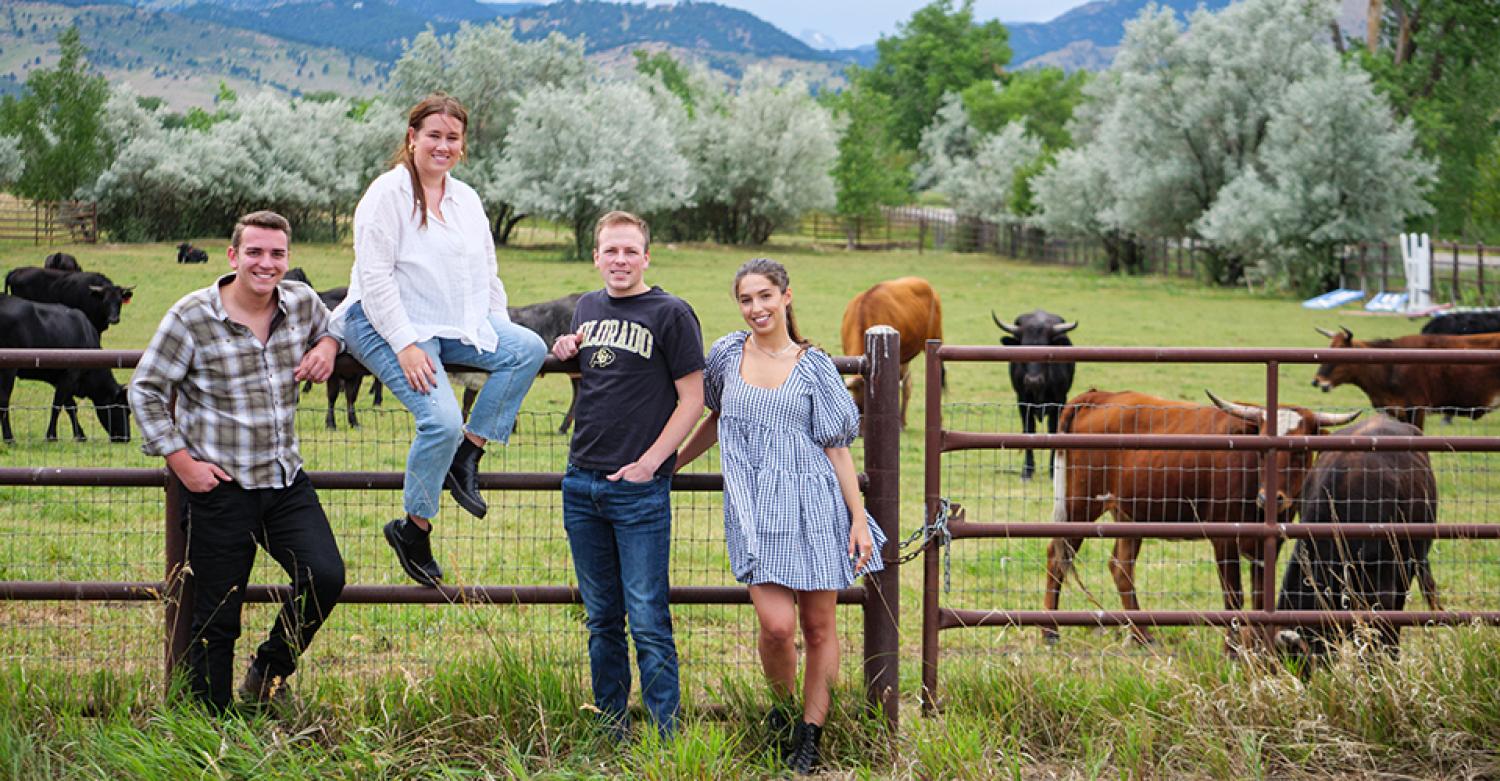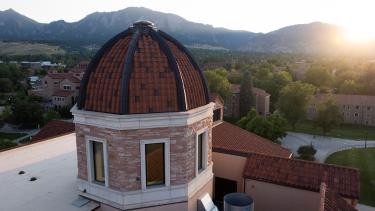Moo-ved to Rethink Emissions

From Business at Leeds 2022 | Full issue
The Agraaze team is made up of five business students. From left are Taylor Brooks-Murphy, Asa Peterson, Chris Haworth and Dasha Prosolova; not pictured is Fynn Blake. Below right, the team enjoys a few lighthearted moments at a ranch.
Plastic production, coal combustion, bovine burps: Which one of these carbon-gas emitters can be reduced by a combination of entrepreneurial thinking and seafood?
Among the top contributors to climate change, methane emissions from cow belches account for about 14.5% of global greenhouse gases, according to the United Nations’ Food and Agriculture Organization.
But what if ranchers added a little seaweed to cow feed? A scientific study published in the journal PLOS ONE showed it would cut their methane emissions by a whopping 82%.
That was enough to convince a team of business students, known as Agraaze, to launch a company that produces seaweed feed pellets for cattle. In just five years, they predict their company will allow ranchers to provide “methane-free” meat.
In March, when they took their carbon-reducing business idea to the New Venture Challenge—CU Boulder’s premier entrepreneurship competition—they won the NVC Climate Prize and $10,000; they were also voted audience favorite.
“It incentivizes us to move forward and tell people how we need to take action toward saving our climate, saving the animals and the humans that live on the planet,” said Dasha Prosolova (Bus’22), Agraaze team member. “It makes us believe in ourselves more and bring the project to life.”
The Agraaze team was composed of five business students: Prosolova, Asa Peterson, Fynn Blake, Taylor Brooks-Murphy and Christopher Haworth.







